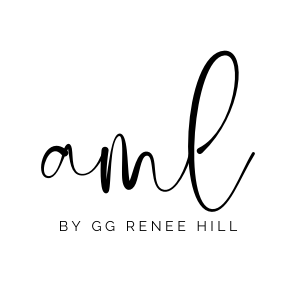i am here and i matter
january 15 | weekly warm-up
From the article: “Consider the stories that matter to you and why and how that shapes how you tell them. Consider what’s more powerful, the way you tell a story to your friends or when you write it down? Why? Who told you that there was only one way to write and real writers, established writers, writers who mean anything, write this way?
It is through language that we find and make meaning of the world. So, what happens when that language we use is negated or deemed less than? How does that shape the way we see the world and our place in it?” - Vanessa Mártir
Also: If you think of your writing as a celebration of your voice, how does that affect your mindset as you write? How can it help you write with more freedom?
On Friday evening, I attended a virtual storyteller session featuring writers from the Roots. Wounds. Words. Literary organization. Their mission is to provide workshops and opportunities that propel marginalized writers into the larger literary community.
The readings included memoir, short stories, poems, and speculative fiction. To my surprise, the event was hosted by Vanessa Mártir , the author of this article on voice that I referenced when I was preparing for this month’s exercises. (Y’all! I love serendipitous moments like that!)
Anyway, listening to the variety of voices, I was transported into the vivid worlds they created, and I silently thanked each of them for finding the courage to share their art. I was reminded that we give each other permission when we show up for our callings. I couldn’t help but think about the Reclaim Coaching Program and my vision to support soulful (and often accidental) storytellers in the discovery and expression of their stories. One key element in these efforts is the importance of community in the development and celebration of each person’s unique writing voice.
In Mártir’s article, she talks about being a woman of color who grew up in Bushwick, Brooklyn, who was told countless times, both directly and subliminally that her voice is less than and that her stories don’t matter. She says, “In school I was told to enunciate my words, say want to not wanna, never pepper my language with Spanish or slang, calm my over-emotive ways of carrying myself and communicating with the world. They tried to strip me of everything that makes me Vanessa, what makes me me, how I dance when I tell stories and show my heart in everything I do—from how I talk to how I write to how I greet you.”
She says, “Language isn’t just how we communicate, it’s how we identify ourselves, it’s how we tell the world, “I am here and I matter.” I write with my Boricua-Honduran by way of Bushwick roots combined with all the other places I’ve been and studied, from boarding school to Columbia University to all the reading I’ve done since and in between, because all these things have shaped me into the woman and writer I am today. And I won’t apologize for that. Neither should you.”
Her article asks a series of questions that we will reflect on for this week’s warmup.

